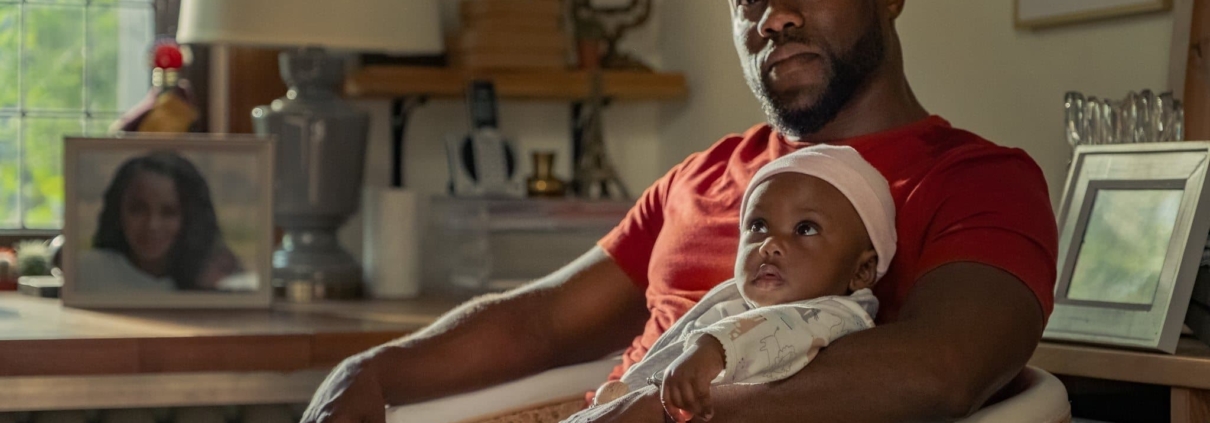What are the risks of being an older father?
Fathers, it seems, are getting older. In some cases, by quite a bit.
This week, representatives for the actor Al Pacino, aged 83, confirmed he is having a child with his girlfriend 29-year-old Noor Alfallah. He’ll be joined in the late fatherhood club by his occasional co-star Robert De Niro, who last month confirmed he is fathering his seventh child at age 79.
The pair certainly aren’t the first old dads: several other male actors, musicians, and even US presidents have had kids late in life. And the average age of new fathers in general has been creeping up over the years. Between 1972 and 2015, it increased by 3.5 years: the average father in the US is 30.9 years old, and 9% of dads were at least 40 years old when their child is born.
The oldest ever father, at least according to Guinness World Records, was 92 years old – although unofficial claims about even older men occasionally surface.
READ ALSO: Sperm donor who fathered 550 children ordered to stop
Becoming an older father does, however, carry risks.
In December 2022, researchers from the University of Utah and other institutions published a comprehensive review of “advanced paternal age” and its impacts on fertility, problems in pregnancy and childhood health.
While many of the studies would likely not have included many men of Pacino’s age, due to how uncommon they are, the evidence suggests that the sperm of men in their forties and fifties is already lower quality in terms of volume, count, motility and mutations.
These changes mean that advanced paternal age “is strongly linked with a high risk of not only infertility but also for pregnancy loss after natural conception”, the researchers write. Several studies, they point out, have shown that an older father significantly increases the risk of miscarriage.
Then there’s the risk of disease after birth. It has been known since the 1950s that older fathers are more likely to have children with the genetic disorder achondroplasia. But since then, correlations with various other conditions have emerged.
“It has become increasingly clear that advanced paternal age, just like advanced maternal age, is associated with… poor health effects in offspring,” the Utah researchers write.
Researchers at Stanford University, for example, found older father were linked to increased risks of low birth weight and seizures in newborns. Advanced paternal age is also associated with increased rates of various childhood cancers, as well as congenital cardiac defects.
It is worth remembering, however, that like many studies that examine associations between health and possible causes, the mechanisms are unclear. There could be other complicating factors that play a role, such as the lifestyle of parents and environmental pollution.
Still, researchers have found that as men age, they can pick up mutations and DNA damage in the cells that form sperm that can then be passed on to the following generation.
Studies like these are leading to changes in the way doctors and scientists think about fertility more generally. There has, historically, been a tendency to focus on the woman and her age when a couple has trouble conceiving. Indeed, much of the research has focused on female fertility. But it is now becoming clear that while male fertility may decline more slowly, and later in life than in women, the age of a father still matters.
For now, the cases of Pacino and De Niro – and other men in their seventies, eighties and nineties – remain a rarity. But overall, fatherhood is no longer a young man’s game. Since the 1970s, the number of US fathers aged under 30 years has decreased by 27%, while the number of fathers aged 45-49 years increased by up to 52%.
If the current trends continue, medicine – not to mention social attitudes – will no doubt have to adapt.
Source: BBC


 IEEE.org
IEEE.org Getty
Getty Getty Images
Getty Images Getty Images
Getty Images






 Wikipedia
Wikipedia
Leave a Reply
Want to join the discussion?Feel free to contribute!